Are you a keen gardener? Or maybe you want to become one someday? You love flowers and want to grow flowers and vegetables for yourself, but do not have the right amount of space? Don’t worry! Container gardening is the answer for you!
You can grow many different varieties of plants in these containers. Herbs like basil, thyme, and chives grow well in containers too. They do not take up much space and they give a beautiful look to your home. A small balcony, yard, or porch will suffice to make a container garden. They will lend color to your apartment or home and give it an attractive look. You can place them on the ground, on a windowsill, or hang them at the entranceway to your home. They change the ambience of your outdoor sitting area and look very welcoming too.
You can use different sized containers to decorate your outdoor area. You can make a cluster of containers to create an ornamental look. Plant them with annuals, dwarf evergreens, or maybe even perennials if you like. When they bloom, they will look wonderful all clustered together, creating a perfect garden look.
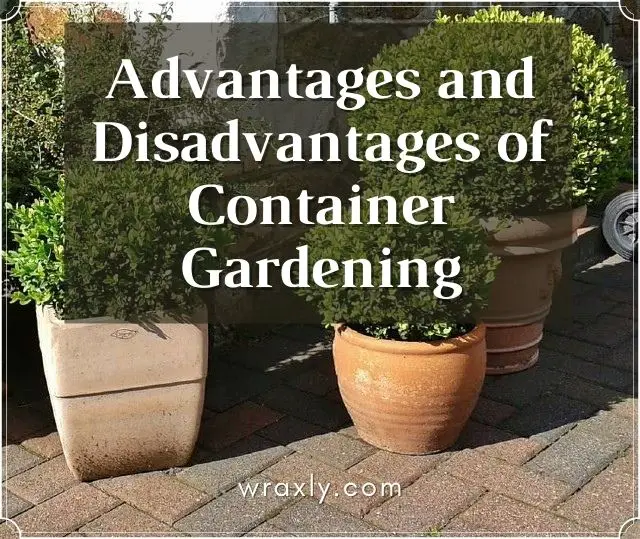
Sizes of the Containers
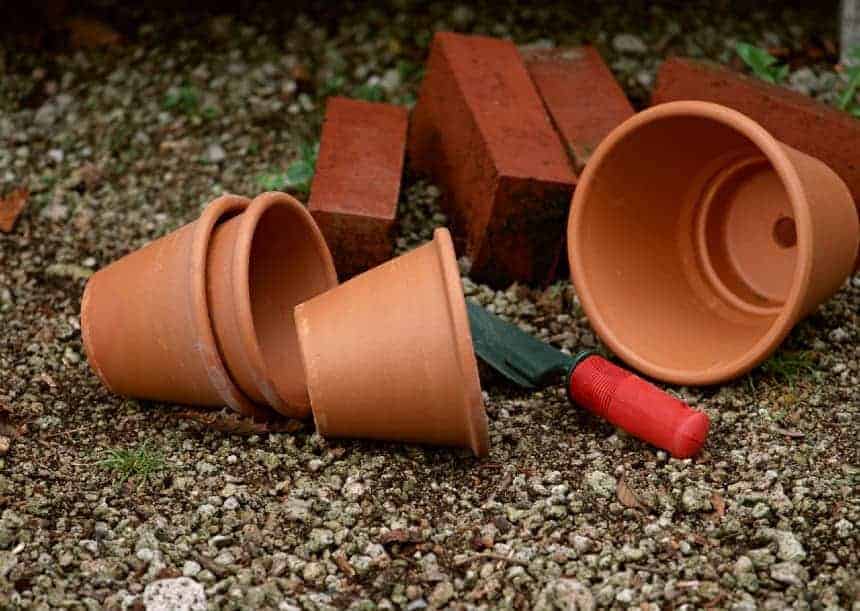
The size of the container is also a matter of consideration when you are thinking of starting a container garden. Remember that it is easier to grow plants in large containers than in small ones. Large containers will hold more soil, keeping it moist and cool. Plants in small containers tend to dry out more quickly. You may have to water them more frequently to keep the plants thriving.
Moreover, the type of plant you want to grow will decide the size of the container. There are several factors involved, like the shape and size of the root system of a plant. In addition, whether it is a perennial, annual, or a shrub, and how fast it will grow is another deciding factor. Root bound plants, however, do not grow well in containers.
Keep in mind, for healthy and thriving plants, there must be adequate space for the roots and soil in the container. Keep the plants well moisturized and fertilized and your container garden will flourish.
Recommended Growing Containers
Advantages of Container Gardening
- The number one advantage of a container garden is the ability to plant it just about anywhere. If you do not have the space for a regular garden, no worries at all. You can make your container garden just about anywhere in your home, be it in the balcony, porch, or the kitchen window. Beautiful flowers, vegetables, and herbs will always grace your home.
- Plants in containers are also easily portable. If they are not getting enough sunlight or the weather is getting too cold, you can always bring them indoors or outdoors according to the weather.
- Container gardens allow you to grow different plants with different soil needs. That is generally not possible in a proper garden.
- There is almost no weeding to be done in container gardens. You can’t complain about that, for sure!
- You are also protected from heavy manual labor in container gardening. They do not need heavy gardening tools at all, just light, water, and fertilizer.
- Plants are also protected from pests and diseases when they are planted in containers.
- You can easily create an indoor garden with container plants, which in turn will improve the air quality in your home and add color and fragrance.
- Lastly, any herbs or vegetables you plant in your container garden are within arm’s reach.
Disadvantages of Container Gardening
- Plants grown in containers tend to dry out easily, so they will have to be watered at regular intervals.
- Fertilizers will need to be added to the soil on a consistent basis. As composting and mulching does not work well in container gardening, a fertilizer solution is the best bet.
- If you want to grow large amounts of vegetables or herbs for your own use, then container gardening is not for you. Only a small amount can be grown in containers, just about enough for one use.
- Container plants are more vulnerable to cold, as they are not protected by insulation from the soil around it. They are more prone to die from cold or lack of water, as precipitation does not benefit these plants much.
- Containers limit the growth of a plant, confining the roots and stunting it.
- Container plants will not get the beneficial manure from earthworms and other creatures.
There are a lot of advantages and disadvantages to container gardening, same as with any other method of gardening. You can weigh both and then decide which method you want to follow and try. Container gardening will be a fruitful experience for you if you have the time and energy to see it through. Remember, container gardening will brighten up your home like no other with no space constraints to think about.
Some Container Gardening Tips
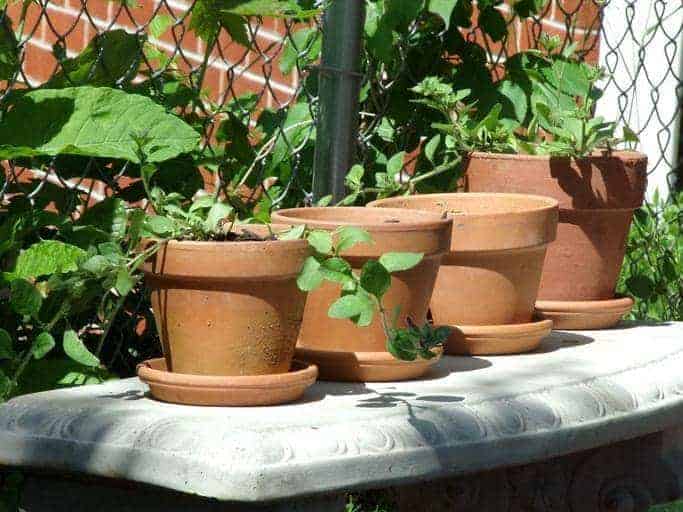
Once you get the hang of container gardening, you may want to add to your container garden every year. Given below are some tips to remember for healthy plants in your container garden.
- Make sure that your container plant has ample drainage. If not drained properly, the water will cause the roots to rot which will eventually kill the plant.
- Add fertilizers to the soil to make the plants thrive. Also, use more potting soil for more water retention. Container plants tend to dry out quickly, so potting soil mixed with fertilizer is a great option.
- Additionally, you can go for light colored containers, as they absorb less heat than dark colored ones and keep the roots cooler during summer.
- Make sure to always use good soil for your container garden. Us good potting mixes to add to the soil.
- When you are moving your container plants inside for the winter, choose a spot that has the maximum, or at least adequate, sunlight required for the plant. This will allow it to grow to its full potential.
- Lastly, you must remember the most important thing to keep in mind when planting a container garden. Always make sure the size of the container complements the size of the plant. For example, you cannot plant tomatoes in a small pot. They will need space and stakes to grow to their full sizes. On the other hand, planting garlic in a large container will be a mistake. Garlic has short roots and thrives in small containers. See: Is garlic a vegetable?
Recommended Potting Mixes
Final Thoughts on the Advantages and Disadvantages of Container Gardening
The truth about container gardening is that it is hard work. It will take up your time, but the results will be worth it. You can look into various options, choose the different types of containers you want, the plants you will be growing, and then dive right in. There are different plants you can grow to suit your style. You will have different vegetables, herbs, and sweet smelling flowers to keep your home looking beautiful.
Make sure to do some research before you start planting your garden. Look at the various plants and the soils they will need, the fertilizer they will want, the care that will be necessary, and then go for it and plant your container garden.
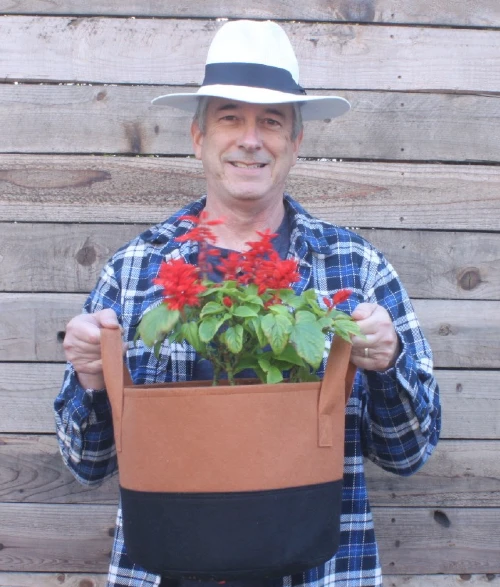
Darrell has a passion for gardening that he inherited from his father. Go here to read more about the influence his father played in his love for gardening. If you want to send Darrell a quick message, then visit his contact page here.
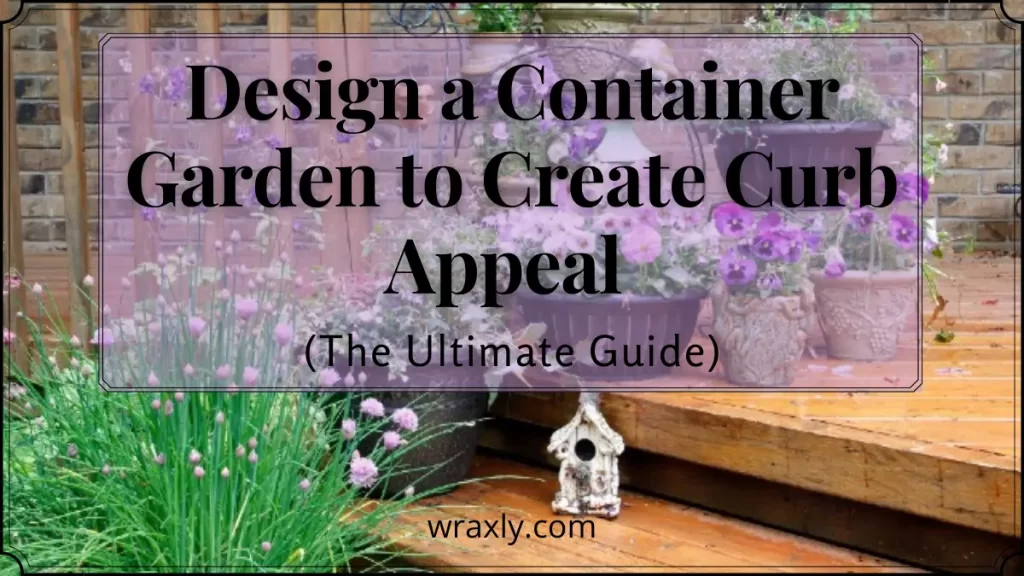
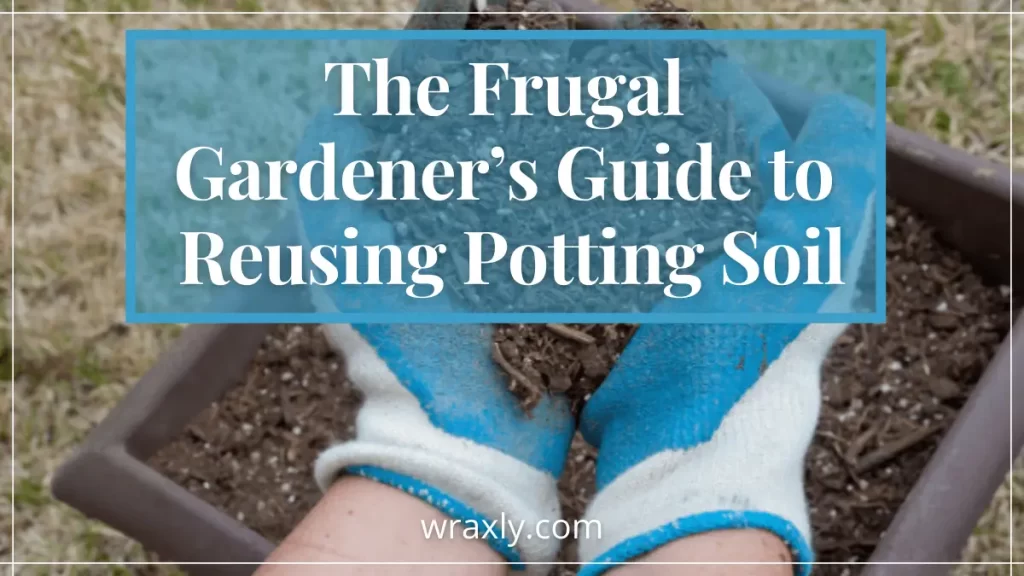
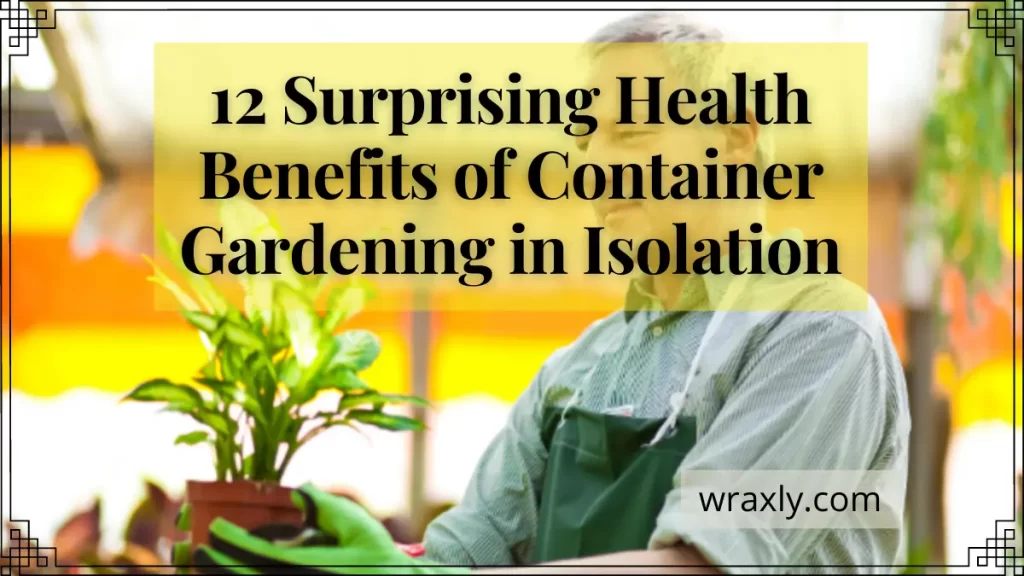
![10 Common Container Garden Mistakes to Avoid [Beginner’s Guide]](https://wraxly.com/wp-content/uploads/2021/02/10-Common-Container-Garden-Mistakes-to-Avoid-Beginners-Guide-1200-1024x576.webp)